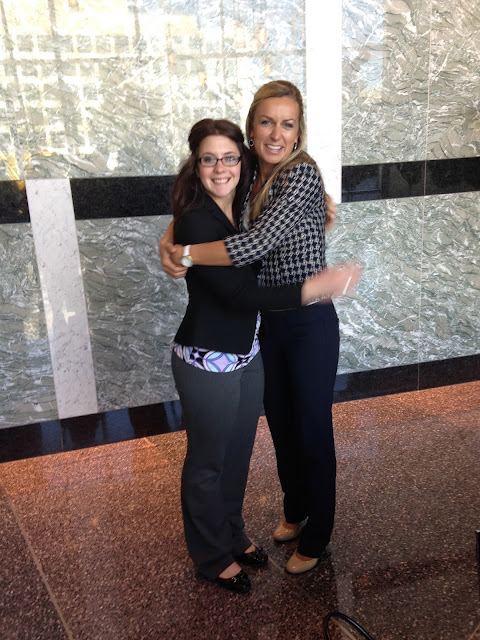Today's food conversations are developing tomorrow's future. Guess what? It won't be stopping anytime soon. However, we have a duty. We must ensure the conversations are happening.
 |
| Me and Congressman Latta, who is the representative for the Ohio district I grew up in. |
Challenges or excuses
When I look back on old photographs, I know I have learned a lot about today's food policy and production. It is not all easy. It is not all the perfectly pruned barnyards and immaculate fields. There are many challenges in agriculture, besides what farmers are trying to overcome.
Monday night, I started typing this blog post to share on National Ag Day. What happened? My computer crashed. I use a MacBook Pro from college, so it is a little aged. That moment the screens began blinking and would not stop, I panicked. Many photos, files and experiences are on the hard drive of this computer. Guess what? That is just a little challenge. It is nothing compared to what others face on a daily basis.
People are fighting for their livelihood. People are working their butts off to put cash in their pockets or food on the table for their loved ones. It is easy to lose sight of what others might be experiencing. Empathy is important. It is even more necessary as we go forward in life to understand circumstances others might be in.
This brings me to a great friend named Adrienne. Her and I first met through AFA in college. We probably would not have met if it wasn't for that. She is a Cali girl; I'm an Ohioan. However, we both share a passion for ag policy, health and fitness and good red wine.
Adrienne is one example of someone making an impact whom I have not connected with in a while. Why? There is no good reason behind it. I need to become more empathetic that her schedule is as busy as mine and make time to touch base with her.
 |
| Adrienne and I would have never met if it wasn't for agriculture policy and AFA. |
 |
| These clowns are tomorrow's future. Ready for us? |
Be empathetic
Friends, family, networks, farmers and legislatures all deserve empathy, appreciation and attention. The knowledge, conversations and understanding about today's food are shaping tomorrow's future. What will we do about it?
Take some time this week, next week, the next few months to get engaged with your local community, your local network, colleagues, foodies, agriculturalists and policy makers.
Conversations should not only start, but also not stop. Continue the conversation after the first one. Continue building relationships and sharing the positives, challenges and opportunities. Above all, share what makes tomorrow's future bright and how we can all collaborate to see that come to fruition.
Learn and share
Take 15 minutes and watch this Ted Talk. It made me think differently about what the food future could look like.
What do you think?
Piecing conventional agriculture like row crops and livestock with more computerized food production will be important for tomorrow's future. We must all take time to actually learn and share ways that food is being produced, possibilities and needs to continue producing it and see to it that the correct policies and measures are used to help the cause, for everyone!


No comments:
Post a Comment